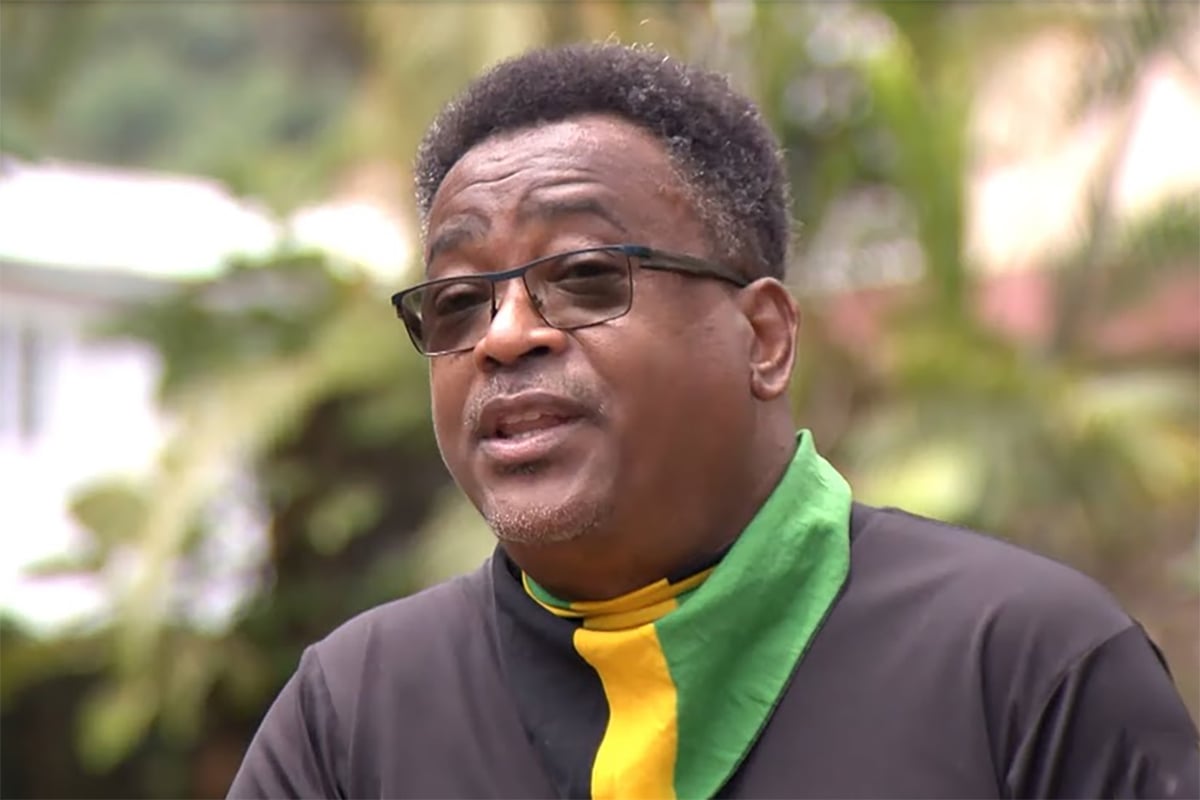Danny Browne Raises Concern About Some New Jamaican Artists, Producers Failing To Register Their Copyrights

Former Main Street Records producer Haldane “Danny” Browne has lamented the fact that there are recording artists and producers in Jamaica, who are in a precarious position, as they have not registered their ownership of their copyrighted music.
Browne, who is Chairman of the Jamaica Music Society (JAMMS), made the revelation during his recent Road To Success interview on Irie FM’s Easy Skanking Show.
“I don’t know if the current crop of players realise that it is a business. I can’t blame them because I was just like them; when I started out, I was just having fun,” the Filthy riddim producer said.
“Recently I tried telling somebody who seh dem sell dem music online and they say their songs published and they tell you who publish it and I say: ‘yuh sure your songs are registered’? I said ‘I understand you are collecting money, you know. But are your songs registered? Where your copyright ownership is registered it is different from the publishing of the song. Because anybody can publish a song’,” he continued.
Added Browne: “And I discovered a lot of people dem don’t copyright dem songs. Dem just a collect the money. And so, when issues come up, they can’t defend it.”
According to the producer, JAMMS has held multiple sensitization seminars on copyright and other music-related matters for members of the industry, but this initiative has seen the organization ‘preaching to the converted.’
“You see for the professionals who want to see the growth of the industry, and want to have an industry 20, 50, a hundred years from now, they need to educate themselves where they don’t know. And where they know start to apply and try and reach out to the younger ones,” he said.
“JAMMS have been putting on seminars for years now. We invite the music industry, and we end up like preaching to the choir most of the time. Because who need to come don’t come, becaw dem feel, dem know,” he added.
In 2019, rapper Nicki Minaj had sought permission to sample Browne’s 1998 Filthy Riddim for her song Megatron.
Megatron, which debuted at No. 20 on the Billboard Hot 100, spent five non-consecutive weeks on that chart. Filthy had a slew of hits including General Degree’s Traffic Blocking, and Mr. Vegas’ Heads High. It also spawned other hit track such as Beenie Man’s Let Him Go and Lady G’s Breeze Off.
Vegas registered Heads High, which is certified Silver in the UK, with the Copyright Office in the US. In 2020, he brought a lawsuit against VP Records, alleging copyright infringement on Heads High and several other hit songs. Vegas and VP reached an undisclosed settlement in the matter late last year.
In terms of copyrighting music, according to the Jamaica Intellectual Property Office (JIPO), there are nine categories of original works that are protected by the Jamaican Copyright Act.
These are literary, artistic, dramatic, musical, sound recordings, films, broadcasts, cable programs, typographical arrangements of published editions.
Copyright protection for music lasts for the life of the author plus 95 years. After the expiration of this period, anyone may use the work freely without the author’s permission and the work is thus said to be in the public domain.
In March 2021, Sizza Kalonji had implored upcoming Jamaican artists to ensure they secure their intellectual property and publishing rights, by engaging in deals that are beneficial to them and not onerous, as has been the fate of numerous entertainers in the past.
“Di likkle young artiste dem weh a rise up, tiddeh, tiddeh day, mek sure oonu get oonu likkle publishing (rights) an oonu likkle royalties. An rememba dis, all di artiste dem, try own oonu masters, yu hear? Or go 50-50 wid di producers dem. Try own oonu masters. A different time, different age…,” he had said.
In a September 2017 article titled Business ethics lacking in music, Artistes shun Contracts, which was published in The Gleaner, record producer Michael Bell had rebuked Jamaican artists for failing to take steps to ensure they understand the business aspect of the music.
Bell had said that in some cases the producer or members of the entourage have had to contribute lines for songs, but oftentimes, the entourage members are exploited as the artists do not give them any publishing rights for their contributions.
He also said that after songs are completed, some of the artistes refuse to sign inducement letters or the publishing split sheet, the legal document which states who wrote what percentage of a song recorded by a band or an artiste.
The article also quoted consultant Cara Vickers as saying Jamaican artistes “have no excuse for poor business practices since information is readily available”.
She also said that there were too many instances of music being leaked, released or stagnant, due to either party not being able to negotiate, communicate or comply with an agreement”.
Additionally, Vickers had said it was incumbent on producers to explain the terms of the agreement to artistes in order to “avoid confusion or future entanglements”. She also pointed out that after recording for a label, artistes have the legal right to sign off on the song’s release, which if not done prior to its release, could result in lawsuits and removal of content.
